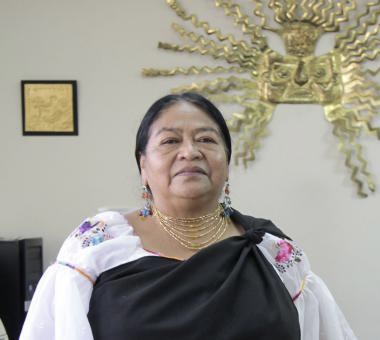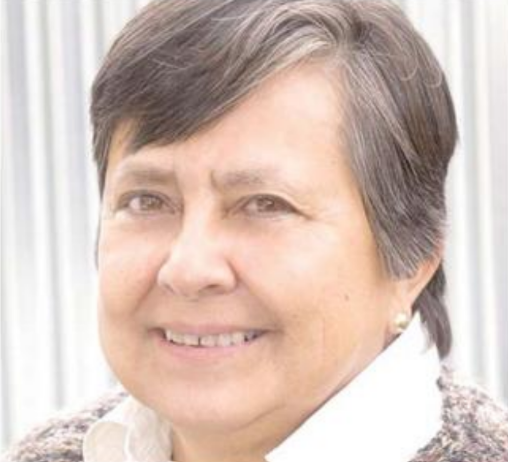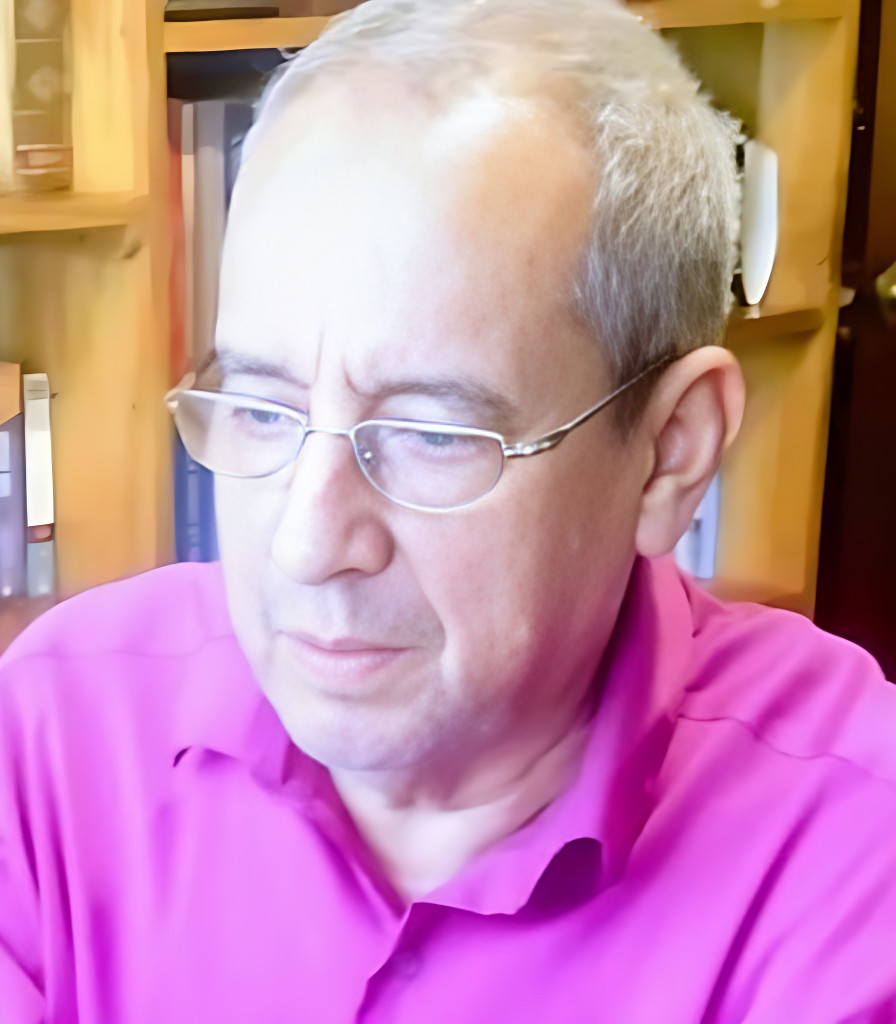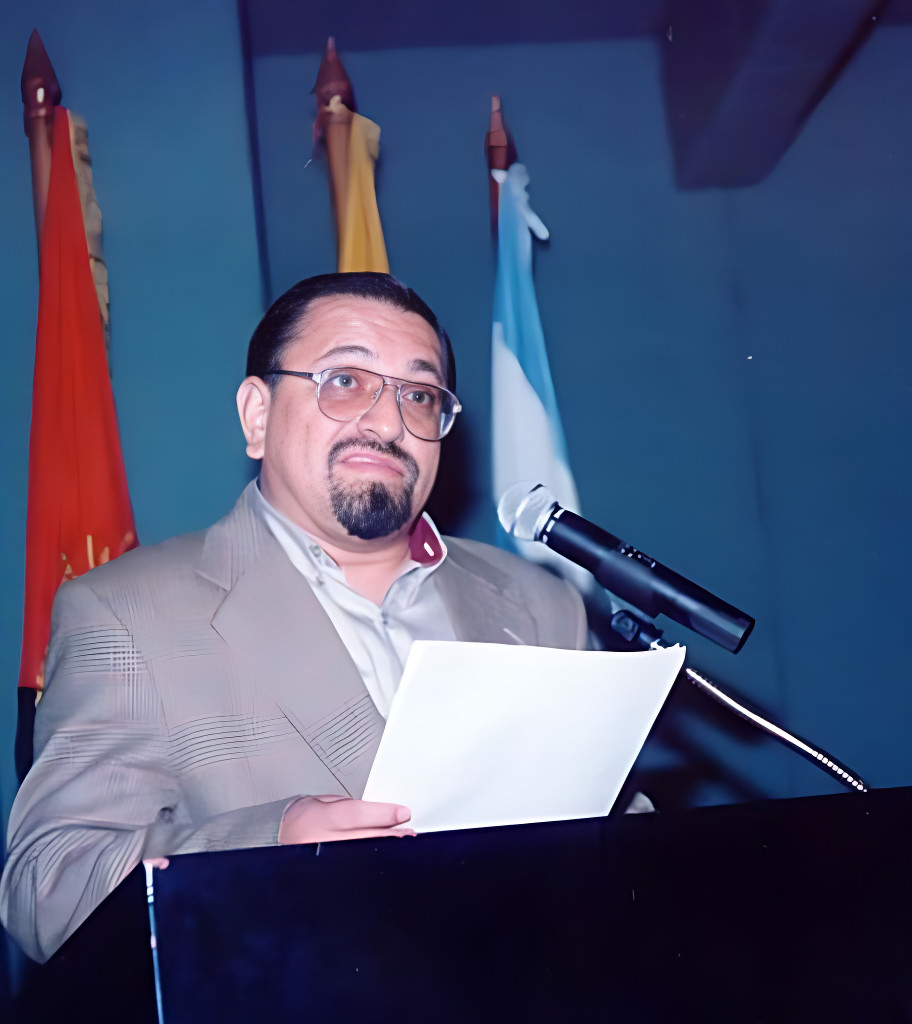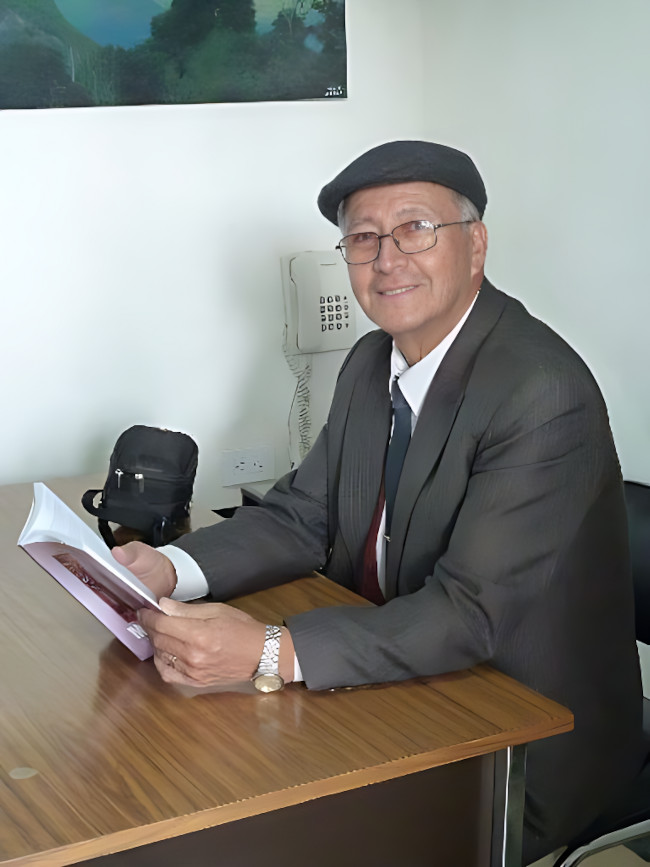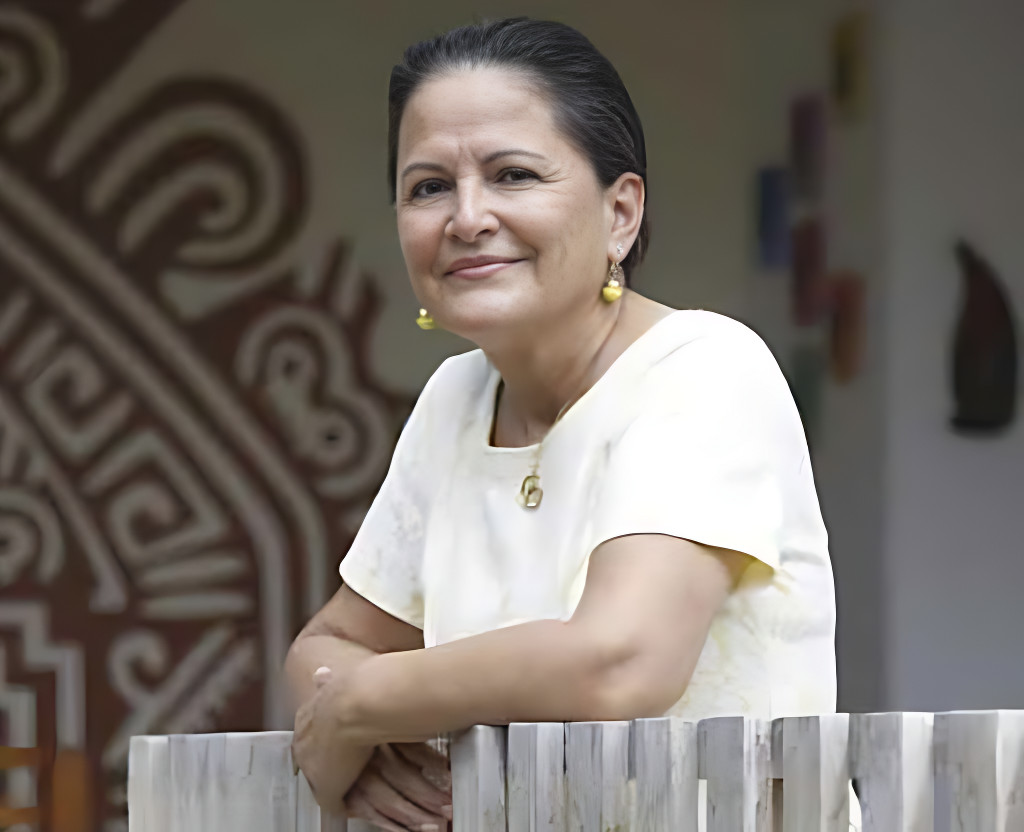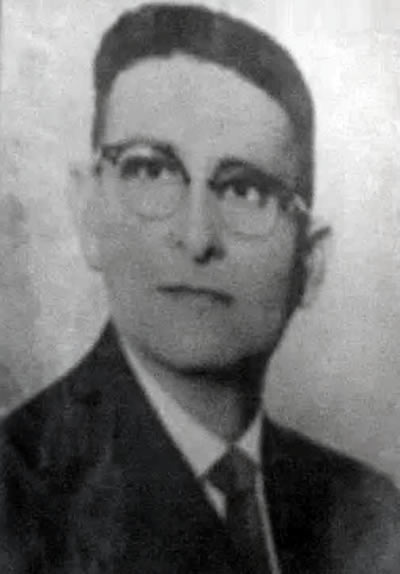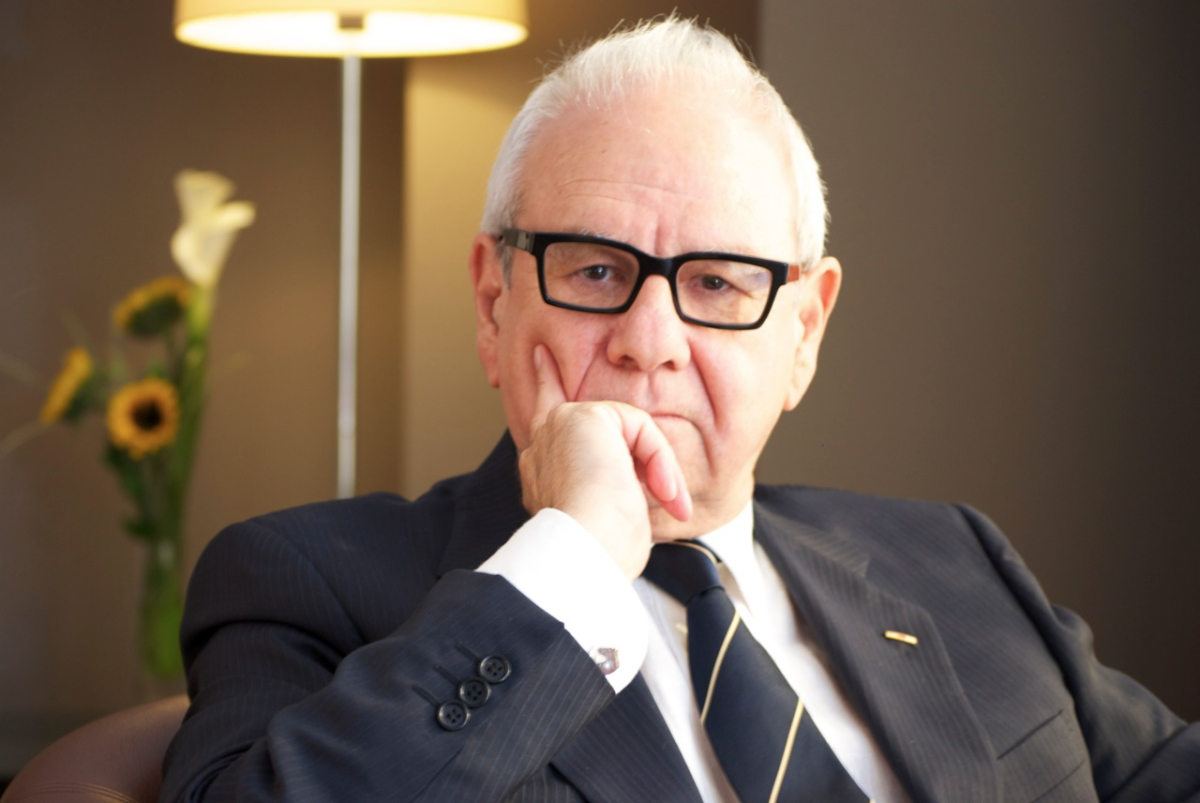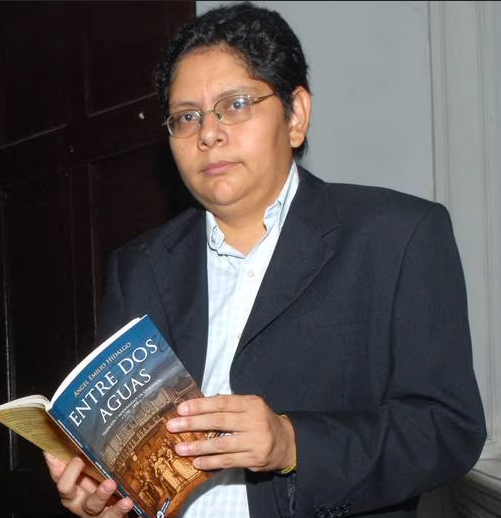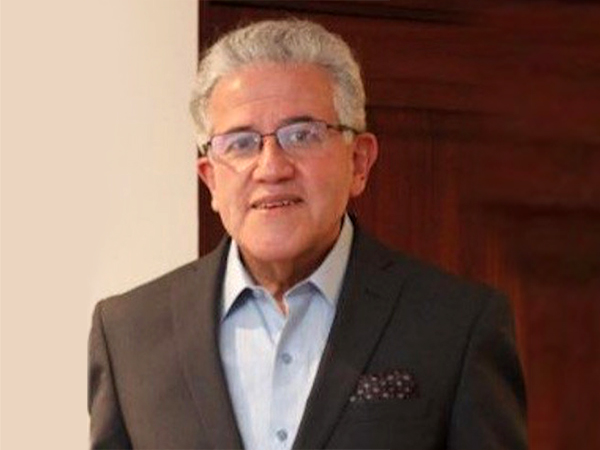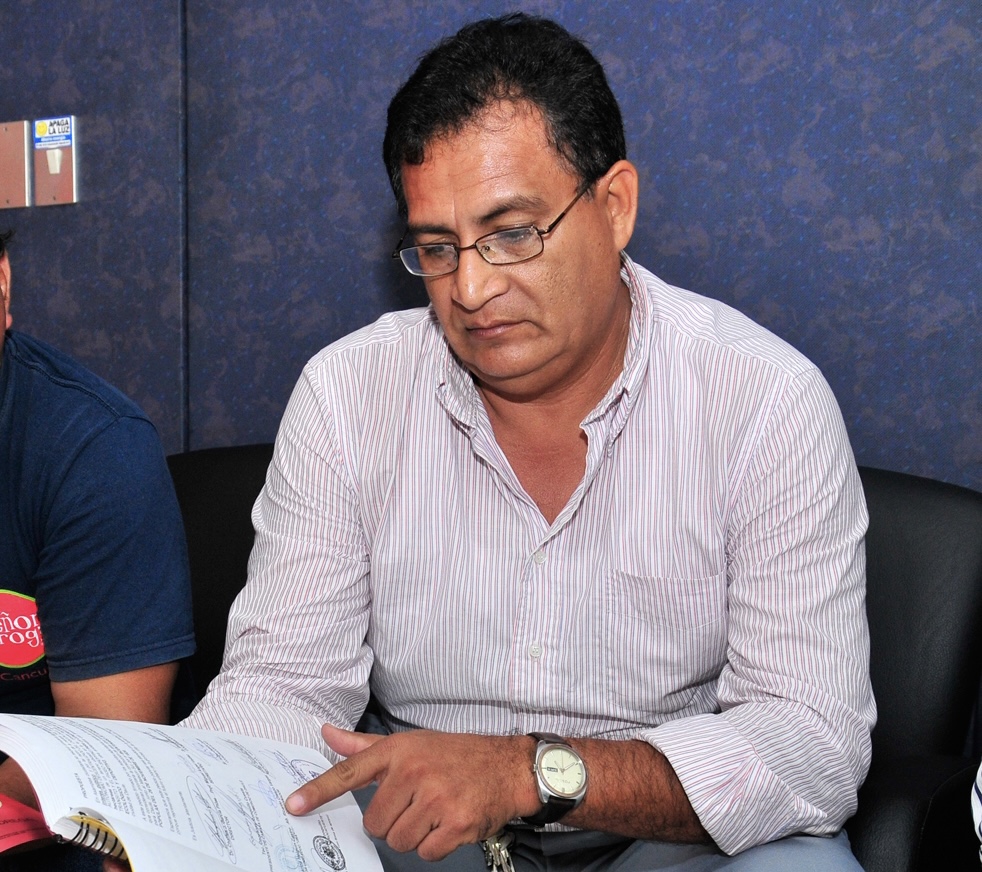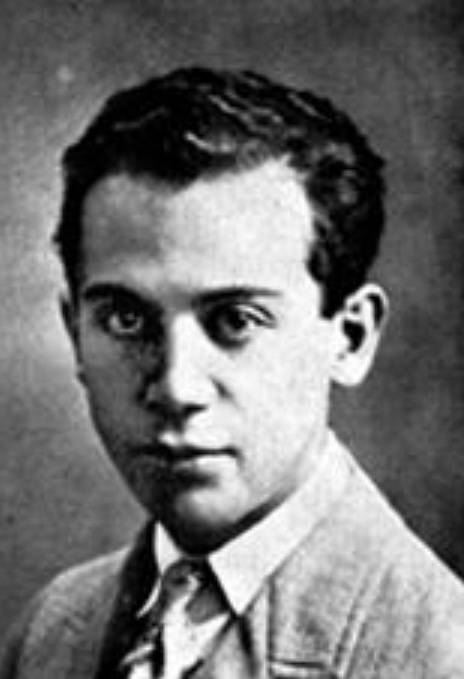Jenny Estrada, or Jenny María Estrada Ruiz (Guayaquil, June 21, 1940 – February 9, 2024) was an eminent Ecuadorian writer, journalist, and historian. Her impactful career began at “El Universo” in 1968, where she was the first woman to serve as an editorialist, pioneering female representation in Ecuadorian journalism. Estrada’s work, deeply rooted in socio-political and cultural analysis, reflects her commitment to uncovering Ecuador’s diverse narratives, particularly the roles and challenges of women. Her notable literary contributions include “Las mujeres de Guayaquil, siglo XVI al XX” and “Matilde Hidalgo de Prócel, una mujer total,” which highlight women’s significant but often overlooked contributions to Ecuadorian history. Estrada’s dedication extends beyond writing; she was instrumental in founding the “Museo Municipal de la Música Popular Julio Jaramillo,” preserving Ecuador’s rich musical heritage. Her esteemed memberships in the National Academy of History of Ecuador and the Spanish Royal Academy of History, along with numerous cultural merit awards, mark her as a pivotal figure in shaping Ecuador’s cultural and historical consciousness. She worked as a columnist under the pseudonym María Ignacia.
Continue reading “Jenny Estrada”Category: Historians
Estelina Quinatoa Cotacachi
Estelina Quinatoa Cotacachi (Riobamba, October 1, 1953) is a distinguished Ecuadorian historian and curator of Kichwa Otavalo heritage. Her extensive qualifications include a Bachelor’s in Applied Anthropology from the Salesian Polytechnic University, a Master’s in Conservation and Cultural Asset Management from Universidad SEK, and the title of Anthropology expert from Universidad Abierta de Loja. She has contributed significantly as an Educational Guide at the Museum and Galleries of the Central Bank of Ecuador and later as an Assistant at the Archaeological Reserve of the Central Bank of Ecuador. Internationally acclaimed, she has conducted courses and conferences across the Americas and Europe. Her prolific publications and research reflect her unwavering commitment to preserving Ecuador’s cultural heritage, culminating in her prestigious induction into the National Academy of History of Ecuador in June 2021.
Continue reading “Estelina Quinatoa Cotacachi”Mariana Ochoa Loayza
Mariana Ochoa Loayza is an accomplished Ecuadorian historian and writer. Her contributions to historical research and literature have earned her widespread recognition and respect. Notably, her books “Vicente Rocafuerte. Gobernación de Guayaquil 1839 – 1843. Epistolario” (Volumes 1 and 2), “Gobernación de Guayaquil, 1839-1840: Epistolario,” and “Viajeros por El Oro” have become invaluable resources for understanding Ecuador’s history and cultural heritage. Her expertise lies in meticulously compiling and analyzing historical documents, providing profound insights into the lives of prominent figures and transformative eras. Mariana Ochoa Loayza’s dedication to her craft has garnered numerous awards and accolades, cementing her status as a revered figure in Ecuadorian academia and literature. Her enduring legacy ensures that her work continues to enlighten and inspire generations of scholars and readers alike.
Continue reading “Mariana Ochoa Loayza”Mariana Cortázar
Mariana Cortázar Crespo (Portovelo, 1946) is an Ecuadorian writer and historian. Her work is characterized by a deep commitment to researching and narrating the history of her native province, El Oro, and other coastal regions of Ecuador. A significant part of her literary contribution lies in her valuable research, with books like “Portovelo cuenta su historia” and “El Oro de Portovelo” standing out as notable examples of her ability to unravel and share the rich history of her region. These works have earned her numerous accolades, including the prestigious David Rodas Maldonado Award from the Casa de la Cultura Ecuatoriana, núcleo El Oro, in 2014. In the same year, she was also honored with the Rosa Vivar Award by the Municipality of Portovelo. Mariana Cortázar’s dedication to preserving and promoting Ecuador’s cultural heritage is further evident in her book “Julio Jaramillo: Nuestro patrimonio,” which pays homage to the iconic Ecuadorian singer Julio Jaramillo.
Continue reading “Mariana Cortázar”Fernando Macías Pinargote
Fernando Macías Pinargote (Portoviejo) is an Ecuadorian author, poet, and academic known for his contributions to the cultural and literary landscapes of his home province of Manabi. His illustrious career spans roles as a cultural promoter, a newspaper editorialist, a professor, and a director of various cultural institutions. Macías Pinargote’s literary repertoire is equally impressive, featuring diverse works from poetry collections like “El bus de las 5” (1976), “Teoría del juego” (2007), and “El signo” (2011) to journalistic chronicles like “La Primera pantalla” (2003) and his latest work in 2023, “El fútbol junto al río,” a historical account of establishing Portoviejo’s first soccer stadium. His unique narrative style and commitment to the cultural enrichment of his country distinguish Macías Pinargote as a significant figure in Ecuadorian literature, journalism, and academia.
Continue reading “Fernando Macías Pinargote”Carlos Calderón Chico
Carlos Calderón Chico (Guayaquil, June 14, 1953 – January 4, 2013) was an influential Ecuadorian historian, writer, journalist, cultural manager, and bibliophile. He pursued a degree in Literature and Spanish from the University of Guayaquil. He emerged as an acclaimed educator, teaching History and Ecuadorian Literature in various Guayaquil schools. Calderón Chico’s contributions extended beyond academia, as he became a crucial figure in Ecuador’s cultural and literary scene. He participated in the management of cultural supplements and magazines, facilitated cultural debates, and engaged with prominent writers, painters, and politicians. As a testament to his dedication, he received the First Class Cultural Merit Decoration from the National Government and was declared Journalist of the Year by the Guayaquil Association of Journalists. His career also spanned overseeing the Ecuadorian Society of Writers, coordinating for Revista Diners, and conducting important research for the Historical Archive of Guayas. Calderón Chico’s writing portfolio boasts numerous publications, interviews, and critical analyses, which have played an integral role in shaping Ecuadorian literature and cultural history.
Continue reading “Carlos Calderón Chico”Pedro Reino
Pedro Reino Garcés (Cevallos, February 9, 1951) is an Ecuadorian writer, historian, and journalist. He has published numerous works on the history of the Tungurahua Province and serves as the official chronicler of Ambato. Reino has written in various genres including poetry, short stories, novels, and essays. He has received recognition and awards for his literary contributions, and his books have been translated into languages such as Japanese, Korean, Serbian, and German and published internationally. Reino’s works delve into historical and cultural aspects of his region and reflect his passion for storytelling and preserving local heritage. He is a member of the Ecuadorian House of Culture, Tungurahua Branch. Since 2014, he has been a member of the National Academy of History.
Continue reading “Pedro Reino”Libertad Regalado Espinoza
Libertad Regalado Espinoza (Jipijapa, April 26, 1956) is a Numerary Member of the National Academy of History of Ecuador. She is a pedagogue, writer, and researcher. She has written books, scientific articles, and works related to history and intangible cultural manifestations of the coastal peoples of Ecuador, particularly Manabí. Her notable works include “Manabí y su comida milenaria” (Manabí and Its Ancient Cuisine, 2008-2029), “Las hebras que tejieron nuestra historia” (The Threads that Wove Our History, 2010), “Identidad e indigenismo en Manabí” (Identity and Indigenism in Manabí, 2016), “Santa Ana madre del río Grande” (Santa Ana, Mother of the Great River, 2019), and “El amorfino manifestación cutltural del pueblo montuvio” (The Amorfino, Cultural Manifestation of the Montuvio People, 2019). She has worked on various consultancies and has participated in national and international congresses. In 2020, the National Assembly of Ecuador awarded her the “Dra. Matilde Hidalgo de Prócel” decoration.
Continue reading “Libertad Regalado Espinoza”Próspero Pérez García
Próspero Pérez García (Jipijapa, December 8, 1905 – unknown) was a journalist, writer, and historian from Jipijapa. He dedicated his life to researching and writing about the history of his hometown. His works include “Cincuenta años del incendio de Jipijapa” and “Jipijapa a través de los siglos,” among others. As a journalist, Próspero Pérez served as a correspondent for several newspapers. In addition, he documented the old Jipijapa through his captivating photographs, which have been showcased in photographic exhibitions organized by the National Institute of Cultural Heritage (INPC). His contributions earned him recognition from institutions and organizations both during his lifetime and posthumously. His book on the fire of Jipijapa inspired the town’s anthem. Pérez’s adoptive daughter, Martha Luzardo, currently resides in the house where Próspero Pérez García lived and preserves his works. His writings continue to serve as a valuable resource for writers, journalists, and educators discussing Jipijapa’s history. Próspero Pérez remains a significant figure in the historical narrative of Jipijapa.
Continue reading “Próspero Pérez García”Humberto E. Robles
Humberto E. Robles (Manta, Manabí, Aug 18, 1938 – Miami, May 20, 2021) was an Ecuadorian writer and a renowned specialist in Ecuadorian and Latin American literatures. He retired from Northwestern University in 2003 after teaching for over 30 years and maintained a remarkable level of scholarly productivity until his death. His notable accomplishments included being named a member of the Ecuadorian Academy of Language, a prestigious cultural institution in Latin America. Professor Robles’s research focused on various topics within Spanish American literature, and he contributed extensively to encyclopedias, journals, and book collections. He authored several influential books and held significant academic positions throughout his career, making significant contributions to the field of literature.
Continue reading “Humberto E. Robles”Ángel Emilio Hidalgo
Ángel Emilio Hidalgo Ortiz (Guayaquil, 1973) is an Ecuadorian historian, a poet, a professor at Guayaquil’s University of the Arts (UArtes) since 2014, and the director of the Guayaquil Municipal Library since 2021. His poetry collections include “Beberás de estas aguas” (1997, First Prize in the Ismael Pérez Pazmiño National Poetry Contest), “El trazado del tiempo” (2003, honorable mention in the National Literature Contest of the Guayaquil Municipality), “Fulgor de la derrota” (2010), and “Acapulco so close” (2021). Hidalgo’s poems have been published in various Ecuadorian and Latin American anthologies. such as “Porque nuestro es el exilio” (2006), which features the poetry of three Ecuadorian authors, Ángel Emilio Hidalgo, Luis Carlos Mussó and Ernesto Carrión, as well as Fabián Darío Mosquera, a Colombian poet living in Guayaquil. In addition, he is the co-author of more than 20 books of historical and cultural essays and is a member of Ecuador’s National Academy of History.
Continue reading “Ángel Emilio Hidalgo”Germán Rodas Chaves
Germán Rodas Chaves is an Ecuadorian historian, writer, university professor, and a leader of the Ecuadorian socialist party. He has authored and co-authored multiple books, research studies, and articles on Ecuadorian and Latin American history, politics, medicine and health. Among his books are: “La izquierda ecuatoriana en el siglo 20” [The Ecuadorian Left in the 20th Century] (2000), “Fidel en el Ecuador: a propósito de la visita de Fidel Castro a Guayaquil en 1971” [Fidel in Ecuador: About Fidel Castro’s Visit to Guayaquil in 1971] (2001), and “Eloy Alfaro y Cuba en el siglo XIX” [Eloy Alfaro and Cuba in the 19th Century] (2013). In 2012, the Quito Municipality honored Rodas with the “Isabel Tobar Guarderas” Award for a book he co-authored and edited entitled “Revolución Juliana y salud colectiva” [The Juliana Revolution and Public Health] in recognition as the best book of the year in the social sciences field. In 2021 he published his latest book “Pandemias y enfermedades en la historia del Ecuador, siglos XVIII-XXI” [Pandemics and Diseases in Ecuador’s History, 19th-20th Centuries]. He is a member of Ecuador’s National Academy of History and of the Association of Historians of Latin America and the Caribbean (ADHILAC).
Continue reading “Germán Rodas Chaves”Aida Borja Álvarez
Aida Borja Álvarez was an Ecuadorian historian and poet. In 1959, she released a remarkable collection of poetry titled “Nautilo.” Alongside her poetic endeavors, Aida also delved into nonfiction, producing compelling works such as “El Capitán de los Andes” (1960), a comprehensive two-volume biography chronicling the life of Simon Bolivar. Additionally, she authored “Grecia” (1960), an insightful exploration of Greece’s majestic mountains, its gods, and the people that inhabit its land. Aida’s literary repertoire extended further with “Mi visión del archipiélago” (1963), a captivating book that offered her unique perspective on the enchanting Galápagos Islands.
Continue reading “Aida Borja Álvarez”Charles J. García Plúas
Dr. Charles J. García Plúas (Daule, 1964 – April 5, 2020) was an Ecuadorian writer, editor, biographer, historian, professor, researcher, and cultural promoter. He was a Language and Spanish professor with a doctorate in Education Sciences. He belonged to various cultural organizations in Ecuador. He authored over twenty books that narrate the history of towns settled on the banks of the Daule River, including Balzar, Colimes, Santa Lucía and others. He served as the Subdirector of Culture and Education of the Municipality of the Daule canton. In 2020, the Guayas chapter of the House of Ecuadorian Culture named a virtual festival in his honor. In 2021, the new Municipal Cultural Center (Centro Municipal de Cultura) of Daule, a three-story building which will house a museum, library, and more, was named “Dr. Charles García Plúas.”
Continue reading “Charles J. García Plúas”Augusto Arias
Augusto Arias Robalino (Quito, March 15, 1903 – Quito, August 24, 1974) was an Ecuadorian poet, essayist, biographer, anthologist, scholar, university professor, and literary critic. His poetry collection Del Sentir (1920) reflects the modernismo movement of early twentieth-century Ecuador. Arias was a passionate scholar of Ecuadorian letters and authored influential studies, including Panorama de la Literatura Ecuatoriana (1936), España en los Andes (1950), and El Viajero de Papel (1968). He also produced biographical studies on prominent figures such as Eugenio Espejo, Luis A. Martínez, and Pedro Fermín Cevallos. Additionally, he co-edited Antología de Poetas Ecuatorianos (1944) with Antonio Montalvo, marking one of the earliest collaborative efforts to document and celebrate Ecuadorian poetry.
Continue reading “Augusto Arias”
